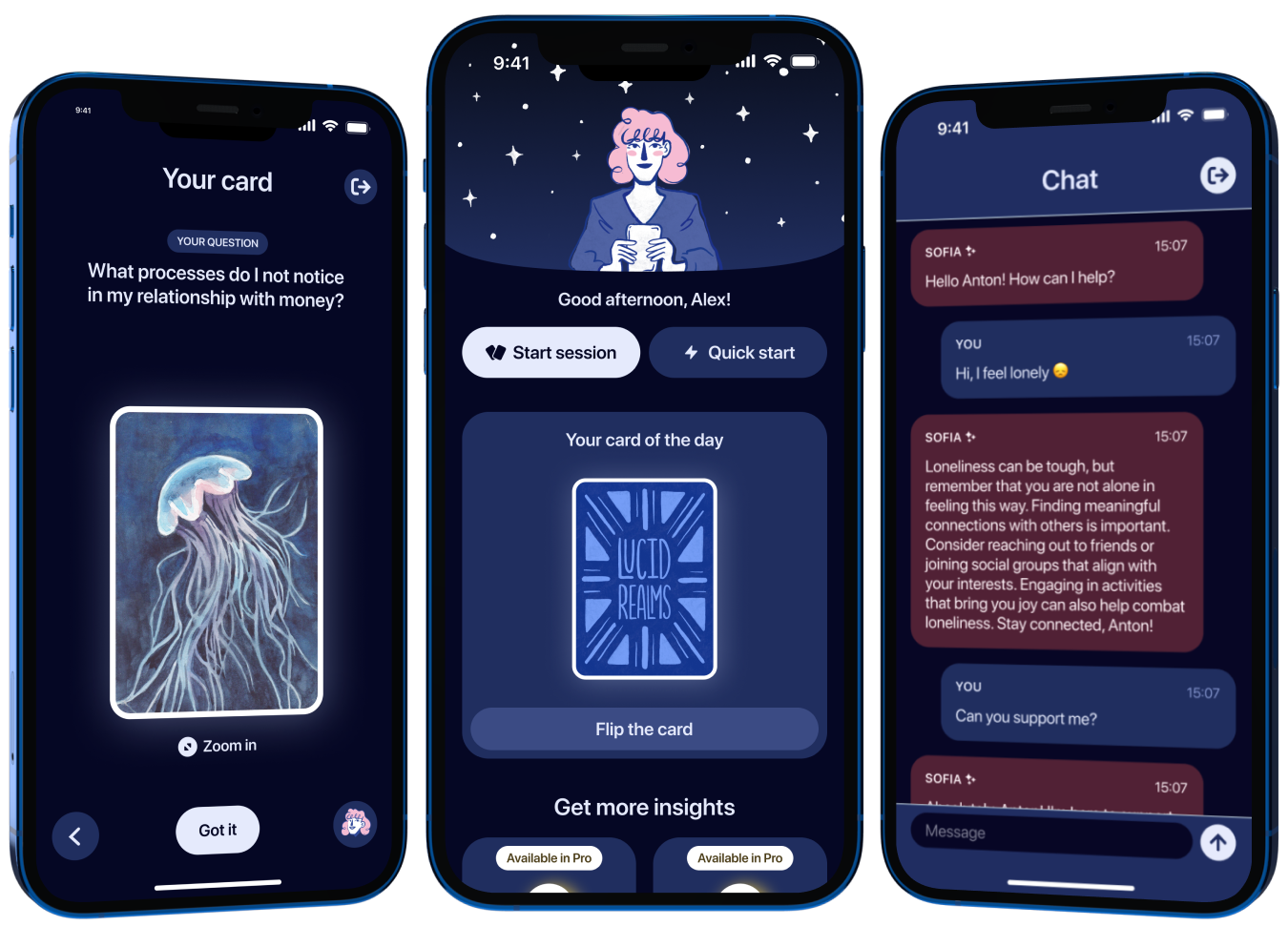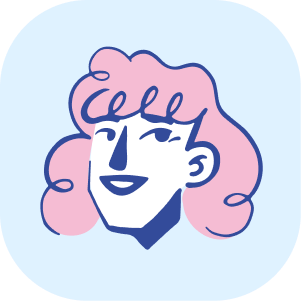We use cookies to give you a tasty experience!
Cookie Settings
We use cookies and data to:
Deliver an excellent service
Track outages and issues
Protect against spam, fraud and abuse
Measure site statistics to enhance the quality of our services
By continuing to browse our site, you’re agreeing to our use of cookies.
Deliver an excellent service
Track outages and issues
Protect against spam, fraud and abuse
Measure site statistics to enhance the quality of our services
By continuing to browse our site, you’re agreeing to our use of cookies.
12 Simple Ways to Calm Down and Stop Getting Nervous
Sometimes we look for complex recipes to improve our quality of life. We think: "I'll go to yoga, and immediately become calmer". And of course, we don't go to yoga. And we get a heartfelt excuse - why we feel so bad. There is no good yoga in the area! Sad...
Nevertheless, there are primitive first aid remedies for self-help that have been used for stress, irritation, frustration, and when someone or something is eating your brain since time immemorial.
They were used for recommendations by old school general practitioners (and not only them). Of those who took the patient by the hand, and it was already easier for them because of that.
Physiotherapists, masseurs and sports instructors taught advice on self-help. Now the advice costs more and is formulated more complexly. Self-help is suppressed, this is not a market approach.
And we will return to the good old days when self-help was encouraged
Nevertheless, there are primitive first aid remedies for self-help that have been used for stress, irritation, frustration, and when someone or something is eating your brain since time immemorial.
They were used for recommendations by old school general practitioners (and not only them). Of those who took the patient by the hand, and it was already easier for them because of that.
Physiotherapists, masseurs and sports instructors taught advice on self-help. Now the advice costs more and is formulated more complexly. Self-help is suppressed, this is not a market approach.
And we will return to the good old days when self-help was encouraged
Method 1. Get distracted by something.
This method of relieving emotional tension is suitable in cases when you are caught in a trap, driven into a corner and cannot escape anywhere. For example, you are sitting at a meeting and listening to your boss, boiling inside. You can't run away, but... Distraction while contemplating something neutral and absorbing it is the best way not to wind yourself up over trifles.
For example: "What a manicure Masha has... I wonder how she did it?"
This only works if you understand the benefit of such a strategy yourself - not to look at nastiness, not to listen to nastiness. If you like to boil up and get into arguments - that's your right.
For example: "What a manicure Masha has... I wonder how she did it?"
This only works if you understand the benefit of such a strategy yourself - not to look at nastiness, not to listen to nastiness. If you like to boil up and get into arguments - that's your right.
Method 2. Leave the irritating situation (also known as an emotiogenic zone).
Something saddened you at someone else's birthday party? At a picnic? You can't stand some group, public page, social media page? You dream of deleting an unpleasant person from your friends list?
So, quickly left the group forever. Banned the provocateur, troll, boor, fool. Deleted your profile, if anything.
Quickly called a taxi (don't be stingy, don't be stingy) kissed the hostess and rushed home - away from the party, away from the barbecue, away from the irritating, emotiogenic zone.
So, quickly left the group forever. Banned the provocateur, troll, boor, fool. Deleted your profile, if anything.
Quickly called a taxi (don't be stingy, don't be stingy) kissed the hostess and rushed home - away from the party, away from the barbecue, away from the irritating, emotiogenic zone.
Method 3. Drink some water.
This is the signature recipe of all the brilliant general practitioners who do not retail supplements from pharmaceutical corporations.
A glass of water, drunk unhurriedly, relieves all known attacks of sciences. The first thing they offer a person who has been hit by something terrible is a glass of water. Drinking water triggers the body's self-healing mechanism. Most often, people feel bad for two reasons:
A glass of water, drunk unhurriedly, relieves all known attacks of sciences. The first thing they offer a person who has been hit by something terrible is a glass of water. Drinking water triggers the body's self-healing mechanism. Most often, people feel bad for two reasons:
- Hysteria (sympatho-adrenal crisis in other words),
- Unnoticed dehydration of the body.
Method 4. Get involved in an exciting, interesting activity.
This method is suitable in a situation where you cannot "let go". You need to overwrite getting stuck on chewing over "Oh, they, Oh, me, Oh, the hell with them all" with something sublime, even if stupid and tasteless. Reading a detective story. Computer game. Hunting and gathering. Surveillance and tracking. An attempt to uncover someone's secret. Even peeping and eavesdropping, damn it.
You must be intrigued, in a detective story, in a swift development of events, in the hunt, in the game, in the excitement, in the flight.
Your ears should perk up and your tail should twitch.
You know what can fascinate and entertain you. For everyone it is their own, individual thing. Just don't get carried away with this surveillance. Do not harm anyone.
You must be intrigued, in a detective story, in a swift development of events, in the hunt, in the game, in the excitement, in the flight.
Your ears should perk up and your tail should twitch.
You know what can fascinate and entertain you. For everyone it is their own, individual thing. Just don't get carried away with this surveillance. Do not harm anyone.
Method 5. Physical discharge.
Everyone is familiar with this method by hearsay, but as usual, everyone doesn't care. And I remind you again that rapid physical discharge, which includes:
- Walking,
- Swimming,
- Spring cleaning the apartment (can be someone else's),
- Sex,
- Destroying clutter,
- Work in the garden,
- Dancing,
- Washing floors and hand washing. It fantastically effectively relaxes twisted muscles and relieves stress and frustration. A general hand wash even helps cope with grief - again the advice of an old doctor that I am sharing with you.
Method 6. Make contact with water.
Washing dishes is a free hypno-psycho-therapy session. The sound of clean running water relieves our fatigue and washes away all the "dirt", not just household.
In addition to washing dishes, there is the well-known classic: take a bath, take a shower, go to the bathhouse, go early in the morning or in the evening - to swim in the sea, river, lake, spring. Refresh yourself, in short.
In addition to washing dishes, there is the well-known classic: take a bath, take a shower, go to the bathhouse, go early in the morning or in the evening - to swim in the sea, river, lake, spring. Refresh yourself, in short.
Method 7. Positive reframing of a stressful event.
So much has been written about positive reframing (including by me) that I don't want to repeat myself. I'll just give an example:
"How nice that it happened this way, that I won't go anywhere this summer! Finally I will go to English courses, fitness and more self-development courses! When would I allow myself such a "useless" luxury? And in the summer everywhere is the off season and discounts all around. So I'll even save money!"
"How nice that it happened this way, that I won't go anywhere this summer! Finally I will go to English courses, fitness and more self-development courses! When would I allow myself such a "useless" luxury? And in the summer everywhere is the off season and discounts all around. So I'll even save money!"
Method 8. It could have been worse, it's even harder for others.
You don't like the outcome of the event? Imagine that the outcome could have been even worse. Imagine how bad some people around you have it. If you master this art and stop turning up your nose at this strategy, you will not need any psychotherapy at all.
Method 9. Laughter kills everything scary and terribly important.
Mockery, diminishment, vulgarization of something inflated and important is an ancient recipe of human culture, from the Neolithic onwards. Thanks to grandfather Bakhtin for his term "carnival-laughter culture". Read, be interested.
Or watch one episode about the adventures of SpongeBob SquarePants. When he was panicking about speaking at a school seminar, a smart squirrel gave him super glasses. Putting on these glasses, SpongeBob saw all the students and the teacher... in their underwear. It was funny! Though from laughter, he never did read his report. And what kind of panties the teacher had... Mmm...
Or watch one episode about the adventures of SpongeBob SquarePants. When he was panicking about speaking at a school seminar, a smart squirrel gave him super glasses. Putting on these glasses, SpongeBob saw all the students and the teacher... in their underwear. It was funny! Though from laughter, he never did read his report. And what kind of panties the teacher had... Mmm...
Method 10. Count to 10.
Just count to ten. Slowly. Controlling your breaths in and out. To yourself, not out loud. This is the recommendation of doctors and sports coaches.
Method 11. Cry.
Crying relieves stress. With the tear fluid, the body loses those toxic substances that form under the influence of stress hormones. If you can't cry about yours - come up with a tearful topic and intentionally cry over it.
Method 12. Verbalization of everything that is on your soul.
Verbalization or articulation - embodying a vague "something" in clear words. However, a great thing. And even better - writing all this down on paper, writing a long letter.
Just don't send it anywhere!
Just don't send it anywhere!
Here are 12 tips for dealing with stress and illnesses that stress later causes. These 12 are those that help us and do not require money for it. And the rest - expensive and from charlatans.





